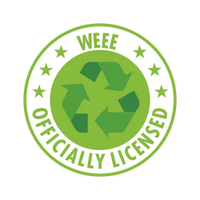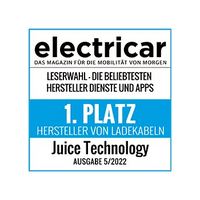Bar-room argument no. 1: Batteries contain rare earths.
... the lithium-ion batteries currently used in vehicles do not contain any rare earths? You can find out what is in the battery here. And what rare earths are is explained here.
In other words: There is NO often-reported exploitation of the earth, third-world pollution and child labor when it comes to electric car batteries.
Lithium source
Quelle Metalle
Bar-room diarrhea number 2: Batteries need to be replaced after 3 years.
... today's batteries guarantee 3000 full charge cycles and then still have 80% remaining range?
... which, for example, for a Tesla Model S results in the following calculation: 3000 x 500 km battery capacity = 1,500,000 km?
... with an average annual mileage of 15,000 km your car will last 100 years?
In other words, if you want to wear out your battery in 3 years, you'll have to drive 500,000 km a year. Enjoy.
Missed issue No. 3: The disposal of batteries has not been resolved.
... a Li-Ion battery with 80% remaining capacity has a second life ahead of it as a household battery?
... he would be happy to serve for another 30 years?
... a Li-Ion battery can already be 100% economically recycled today?
... people do that, but rarely, because there is a second life for now.
... and if you don't believe it, just google duesenfeld.com ...
In other words: Long before recycling comes the "second life". And then: full recycling means no waste.
This is how sustainability works.
Common ignorance No. 4: The production of batteries requires as much energy as driving a petrol car 60,000 km.
... several battery factories around the world will be running on 100% solar energy by 2020, including Tesla's Gigafactory 1 in the Nevada desert? This means that the production of batteries there requires exactly ZERO harmful energy.
Source: Fast Company News
In other words: The electric car is ecologically superior to the petrol car from the first kilometer.
Regulars’ table laughter number 5: The extraction of lithium is very problematic because it consumes gigantic amounts of water.
... Maximilian Fichtner, Director of the Helmholtz Institute for Electrochemical Energy Storage, calculated:
Extracting the lithium for an average Tesla battery requires as much water as producing 10 avocados. Or 250g of beef. Or 30 cups of coffee. Or half a pair of jeans. But the latter certainly won't last 1.5 million kilometers, just to say the least.
Source: Tagesspiegel
In other words: Always stick to the facts and keep a sense of proportion.
Barroom embarrassment No. 6: OK, but the water is being used in places where there is already too little of it.
... the water is not "used" at all? It evaporates and then rains back down to earth.
But: Oil production also uses water, in similar places. And a lot of it: 46 billion liters of water are needed to produce 17.5 billion liters of oil every day (!). "With this water, you could extract lithium for 1.5 million large Tesla batteries - every day," says Maximilian Fichtner. "And even worse: the water used to produce oil doesn't evaporate, it is often poisoned."
Source: Tagesspiegel
In other words: bar-room arguments can quickly become embarrassing own goals...
Stammtisch-Geblaber No. 7: The extraction of cobalt is done with cruel child labor in the Congo
... none of the major car or battery manufacturers source cobalt from questionable mining in the Congo? Tesla, for example, has also provided complete evidence that no children are involved in the procurement of cobalt from any of its 182 suppliers, nor is any money being given to gangs.
In addition, the cobalt content in the batteries is constantly being reduced; Tesla currently only needs 2.8%. By 2025, this should be 0%.
Source: Yova and source: Teslamag
In other words: Everything may not be perfect from the start, but it is basically good and will get even better very quickly.
Missed point No. 8: At some point the cobalt for the batteries will run out
... other people have already thought about this and - unlike the running out of oil - have already found a solution?
Because batteries are of course evolving. So far, the price has halved every three years and performance has increased. In the future, new generations of batteries will be introduced, such as nickel-lithium. The energy density is twice as high and no cobalt is needed. Things are changing.
For all those who don't believe in major progress, just as an example: 20 years ago, 128 MB of main memory on PCs was a lot. Today, less than 20 years later, every idiot PC has at least 4 GB - 30 times more. Things are changing.
Source: Teslamag
In other words: The world has never stood still. Except in the minds of those who refuse to accept progress and those stuck in the past.
Stammtisch Coronation No. 9: But e-mobility is not really catching on anyway
Well, now it's okay, at least as of 2019, 2.6% of new cars sold across Europe are electric. The plan was 1.2%.
Toyota is the last car manufacturer to abandon its hydrogen project. Diesel and petrol car sales are falling dramatically. Germany already has over 80 driving bans in inner cities to combat diesel soot and petrol particulate matter.
In addition, Tesla has sold more Model 3 cars in the USA this year than the entire German middle class combined (and in some European countries too, by the way). In Holland, one in ten cars sold was a Tesla Model 3. In Norway, over 50% of cars are already electric.
At the IAA 2019, there was not a single manufacturer that did not present a new electric model. Even the conservative pick-up drivers from the American hinterland are frantically pre-ordering the Cybertruck. Opel is literally being overrun with pre-orders for the affordable Corsa-E.
Source: Done sources, now google it yourself
Statista , Handelszeitung
In other words: No, there will be no change. Almost like on the Titanic: "No, there is no iceberg."
"The nice thing about the regulars' table is that everyone can have their say. Even those who have no idea."
But knowing the facts helps you avoid embarrassing yourself.













